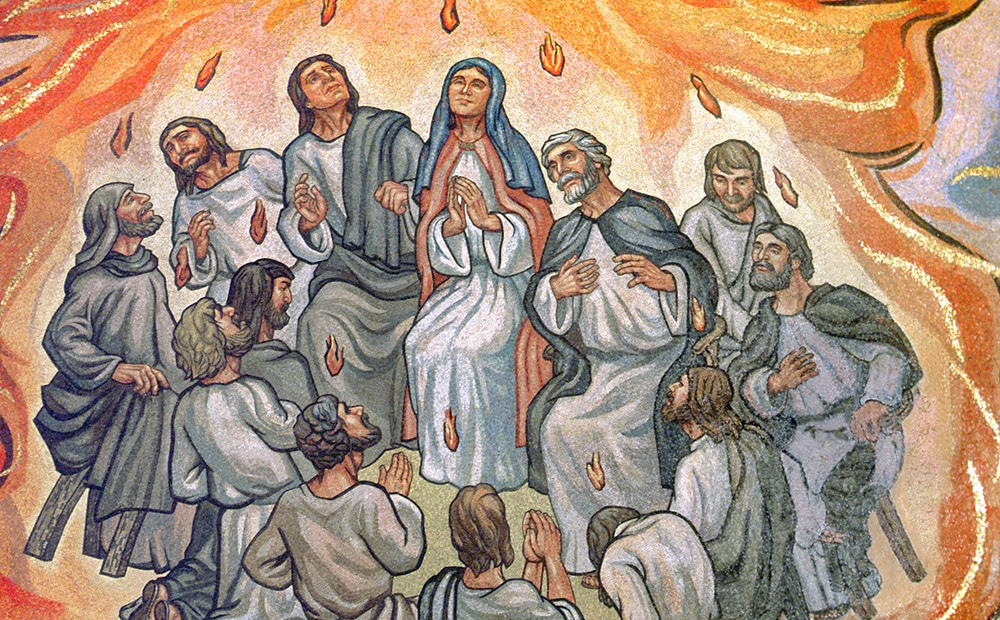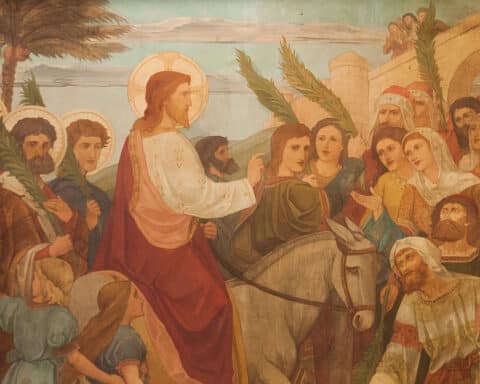Turn on cable news, look at a Twitter feed, or read the comments of any article on any website, and you’ll see disunity.
Through each of these media, we blame each other. We form self-selected groups, echo chambers of like-minded individuals who are both perfectly right and perfectly agreeable. And we learn to rejoice in the downfall of the “other,” the “outsider,” the one who is not enlightened like us.
This disunity is evidence of human sin, what St. Paul refers to as “works of the flesh.” Here, St. Paul does not mean that our bodies are bad. Rather, he means to live as “fleshly” people is to engage in the world as mere animals.
It means to live as those who are unredeemed, using our bodies for “immortality, impurity, lust, idolatry, sorcery, hatreds, rivalry, jealously, outbursts of fury, acts of selfishness, dissensions, factions, occasions of envy, drinking bouts, orgies, and the like” (Gal 5:19-21).
Notice how many of the works of the flesh are occasions for disunity among men and women. Lust creates disunity by treating a man or a woman as an object for one’s own satisfaction. Hatred, rivalry, jealousy, dissensions, factions — all of these rip apart the original harmony that was to exist between human beings at the beginning of creation.
| Pentecost – May 20, 2018 |
|---|
|
ACTS 2:1-11
PS 104:1, 24, 29-30, 31, 34
1 COR 12:3B-7, 12-13 or GAL 5:16-25
JN 20:19-23 or JN 15:26-27, 16:12-15
|
The works of the Spirit are those that heal this disunity, works of love. For this is the wonder of the feast of Pentecost. The Church is the space where the works of love are to be made manifest to the world.
And the Church is never to become an echo chamber of like-minded individuals. For on that first Pentecost, the Spirit descended upon all the nations of the earth gathered in Jerusalem.
Catholicism, as Henri de Lubac wrote, is not one religion among many. It is the gathering of all humanity into Christ. Through one Lord, one faith, one baptism (cf. Eph 4:5), every human being is to enter into the peace of the kingdom of God.
We do harm to Christ’s body when we confuse “the works of the Spirit” for the political propaganda of the Democratic or Republican Party. We do harm to Christ’s body when we cultivate disunity in the Church. It doesn’t matter if you’re a bishop, a priest, a religious or an apostolic Christian engaging in the world. When we let power politics, gossip, and scandal overcome the Eucharistic unity of the Church, we live according to the flesh. When we exclude the immigrant from our parish, because “they’re not one of us,” we live according to the flesh. When we treat the pro-life or social justice Catholic as the “other,” the “problem,” we live according to the flesh.
The Good News of Pentecost is that our tendency to cultivate this disunity, especially in the Church, can be healed. Not through our own will, but as a result of a fresh outpouring of divine love, of the Holy Spirit, upon the Church this day. For the Spirit heals our disunity. In the sequence, or liturgical poem, for the feast of Pentecost the Church comes before the triune God praying for a new cleansing, a new softening of the heart of Christ’s Body, a new illumination of love. In the end, we are not a community of the like-minded, formed according to our own principles. Rather, the Church is the place where the Spirit brings men and women into true communion. Into love.





